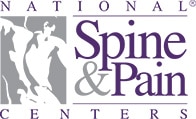
National Spine & Pain Centers
11921 Rockville Pike
Suite #505
Rockville, MD 20852

More Pain Management & Rehabilitation Articles
Slipped Disc Risk Factors and Symptoms
Are you into weight lifting, rock climbing, or hiking through the mountains with a heavy backpack? Adventure activities are fun and exciting, but they come with a high risk of muscle damage. Even if you're not very active, you can develop slipped discs due to various reasons just living your everyday life.
A Slipped Disc Hurts
Our spine has multiple vertebrae, all cushioned by rounded flat discs. A slipped disc happens when a disc gets damaged. This might be due to an accident, or it could be a result of normal living. One of the worst things is when a herniated disc presses itself on a nerve, in effect pinching it. This can lead to swelling, numbness, and a lot of pain.
Do You Have a Slipped Disc?
A slipped disc is also referred to as a torn disc, ruptured disc, or collapsed disc. Although this can be hard on your body, it is important to make yourself fully aware of this condition and learn how to overcome the problems associated with a slipped disc.
Symptoms You May Experience
The symptoms of a damaged disc can vary, and so can the amount of pain you may feel. Some people have damaged discs and manage to feel no symptoms. Some general signs of disc rupture include
Pain in the back
Pain in the legs
Pain gets worse after sitting for a long time
Pain gets worse when bending over
Numbness in arms or legs
Coughing makes back pain worse
Are You At Risk For a Slipped Disc?
While slipped discs can happen to anyone, you might be at higher risk for the following reasons
Sedentary lifestyle
Increasing age
Smoking cigarettes
Poor lifting techniques
Poor posture
Suggestions To Help With a Slipped Disc
Take breaks. Avoid sitting for longer periods of time.
Get moving. Regular exercise helps improve strength in the entire body, which helps the back.
Watch your posture when sitting, standing and walking.
Watch your weight. Staying at a healthy weight can help prevent slipped discs.
Get a good mattress. A good mattress can make all the difference for a slipped disc and will help you get a good night's rest.
Get back pain treatment from a qualified doctor. Avoiding getting help can lead to pain getting worse.
Other Articles You May Find of Interest...
- How to Promote Bone Fracture Healing? Tips for Faster Healing
- Managing Chronic Back and Neck Pain
- Pervasiveness Of Pain
- Effective Solutions for Lower Back Arthritis: Medial Branch Blocks and Radiofrequency Ablation
- Spinal Compression Fracture Treatment Options
- Hiatal Hernia: A Common Cause For Heartburn
- Prevent and Treat Osteoporosis

















